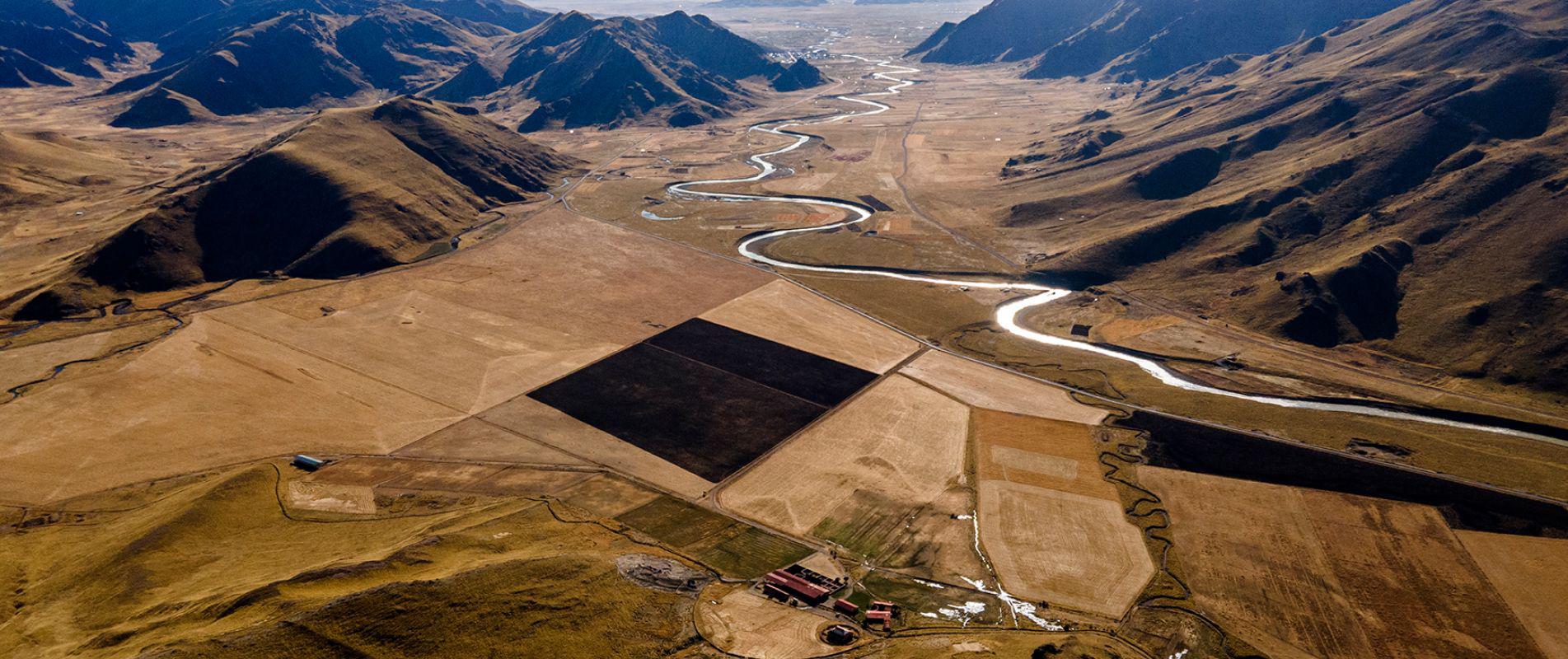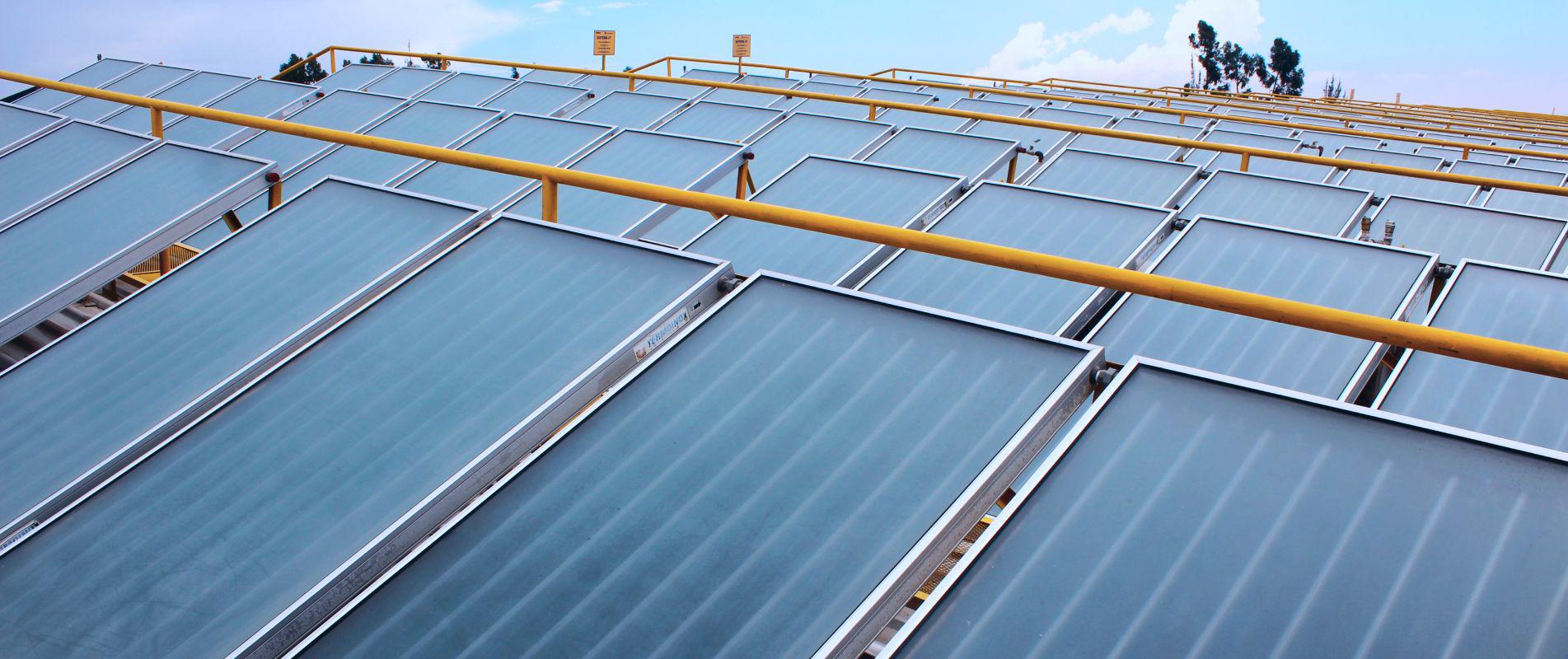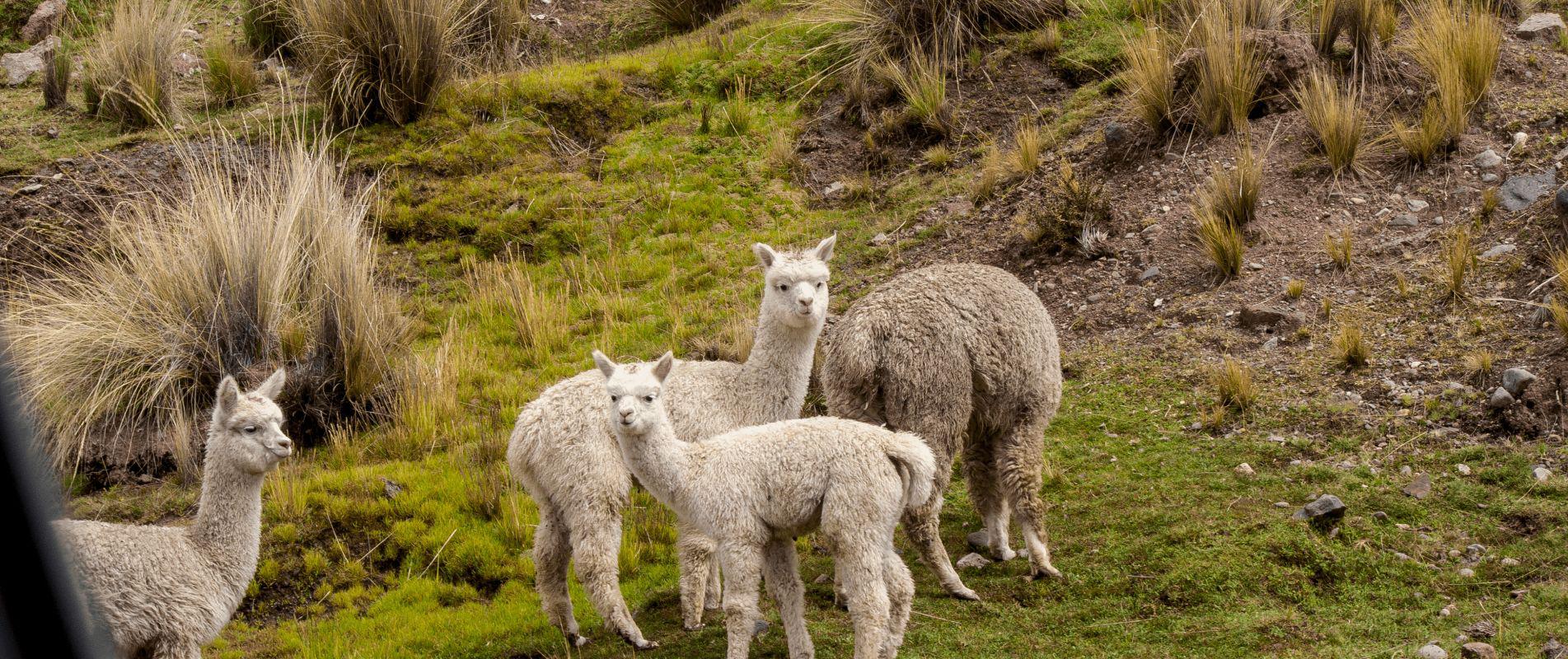
This means not only being certain of the origin of a product, but also having precise control over all the processes involved in production.
We work directly with farmers, fostering a collaborative relationship that goes beyond simple buying and selling, in order to obtain the best quality fiber at a fair market price. It is precisely these fibers that can be traced through various programs and seasons, then processed and marketed as finished products to sustainable businesses.
We believe this level of traceability is crucial to maintaining our standards of sustainability and fairness in the industry. Without it, our efforts to build a fair and sustainable industry would not be possible.

 We have implemented 1,200 solar panels, equivalent to 2,400 square meters of solar collection. This process is not only more efficient, but also reduces any impact on our ecosystem.
We have implemented 1,200 solar panels, equivalent to 2,400 square meters of solar collection. This process is not only more efficient, but also reduces any impact on our ecosystem.
 Thus proud to announce that we have managed to reduce our carbon footprint by 2576 tons of CO2 per year, equivalent to the carbon absorption of 1227 hectares of forest. We are dedicated to continuing our work on sustainable initiatives and reducing our impact on the environment.
Thus proud to announce that we have managed to reduce our carbon footprint by 2576 tons of CO2 per year, equivalent to the carbon absorption of 1227 hectares of forest. We are dedicated to continuing our work on sustainable initiatives and reducing our impact on the environment.

Over the last 10 years, sustainability has become one of the most important ways to generate corporate communication, regardless of the industry. However, our relationship with nature, the impact on human development and the circular economy are more than 20 years old; more than 20 years of efforts to preserve species and habitats, promote the growth of producer families and look to our collaborators as the true engine of our industry.
 More than 900 alpacas of the highest quality, donated to families to increase their production and, therefore, their income.
More than 900 alpacas of the highest quality, donated to families to increase their production and, therefore, their income.
 22 scientific publications that endorse our perennial effort to make room for a species with thousands of years of history.
22 scientific publications that endorse our perennial effort to make room for a species with thousands of years of history.
 8 donated shepherd's huts, homes for breeding families.
8 donated shepherd's huts, homes for breeding families.
 Repopulation of an endangered species, the black alpaca, with more than 1,200 specimens.
Repopulation of an endangered species, the black alpaca, with more than 1,200 specimens.
 2,500 guided visits to teach about the care of the species, breeding techniques and improvement of the species.
2,500 guided visits to teach about the care of the species, breeding techniques and improvement of the species.
